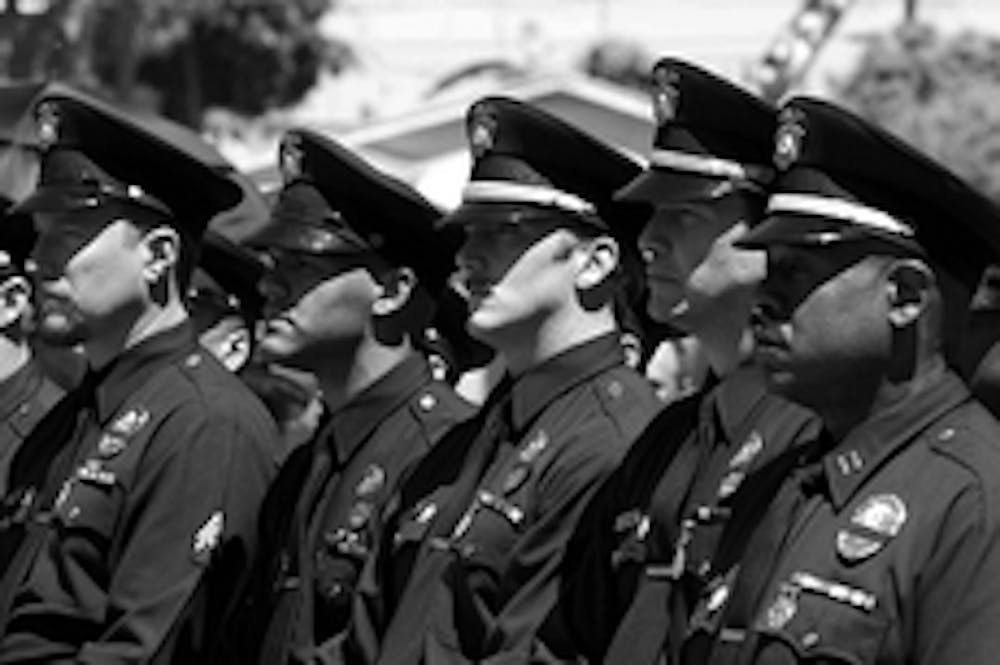Like it or not, there are rules by which we are at least tacitly supposed to abide, lines that law-abiding citizens dare not cross. On the other side of those lines is where morality becomes a fine distinction between murder and justifiable homicide, a world well tread by "Street Kings."
"Kings," starring Keanu Reeves, is the story of Los Angeles Police Department detective Tom Ludlow, a self-described gunfighter, plagued by his own alcohol consumption and driven to do his job-whatever it takes-regardlessly of his own safety or the consequences of his actions. No stranger to the shades of gray, Ludlow bleeds blue after having crossed the line so many times he's forgotten where it is. Ludlow holds fast to his own stoic rules, a stubborn figure who holds if not a moral high ground, then at least a dedication to clean up the streets with his own brand of brutal, and yet nearly poetic, justice.
For once, Reeves seems molded to his character, a one-dimensional man who never seems fully aware of his surroundings, single-mindedly pursuing the best path he can find through the darkness. Part shoot 'em-up-badass and all spoon-fed-tough-guy-vernacular, it's a character that requires less acting and more confusion, moral and literal. Reeves doesn't need to know where his character is going, because in a world dominated by layered darkness, it's anyone's guess where the light might be found.
The film seems to revolve around the search for the light, a search where it becomes difficult to tell the good cops from bad. On the other side of the blue line is a world of cops and internal affairs, each trying to one up and outlast the other, a race to the finish while they try to protect the city from those even more amoral and less honor-bound than them.
In this world, Vice Special Squad Captain Jack Wander (Oscar winner Forest Whitaker) is king. Wander is a longtime friend, confidante and boss to Ludlow. With dirt on everyone and a determination to protect his men and his city, Wander is a force which to be reckoned. Into this man of many layers, Whitaker lends to the character an aura that is absolutely captivating-part father figure, part towering powerhouse of a cop. Much of the plot drives from the collision between Wander and Internal Affairs Captain James Biggs ("House" star Hugh Laurie). Biggs is an instant hit with the audience-an invigorating character with a sense of wry humor as he tries to counter the darker side of the LAPD.
Tugged by his own sense of duty and by the perched devil and angel characters of Wander and Biggs on his shoulder, Ludlow sets out on a path of retribution and vengeance after his ex-partner is gunned down before his eyes in gory detail. With the audience left to guess at which of the two police captains is the angel and which is the devil, we are dragged along for Ludlow's brutal, violent and horrific path through the grittiest streets of Los Angeles.
This exhilarating trek never shies away from blood, guts and danger. Rarely does Director David Ayer throw a successfully hidden curve ball, yet each one elicits a blink. "Street Kings" is nevertheless an enthralling, energetic and action-packed shoot-out between absolutes that takes place in shades of gray, which, at times, hide the difference between police officers and criminals.





